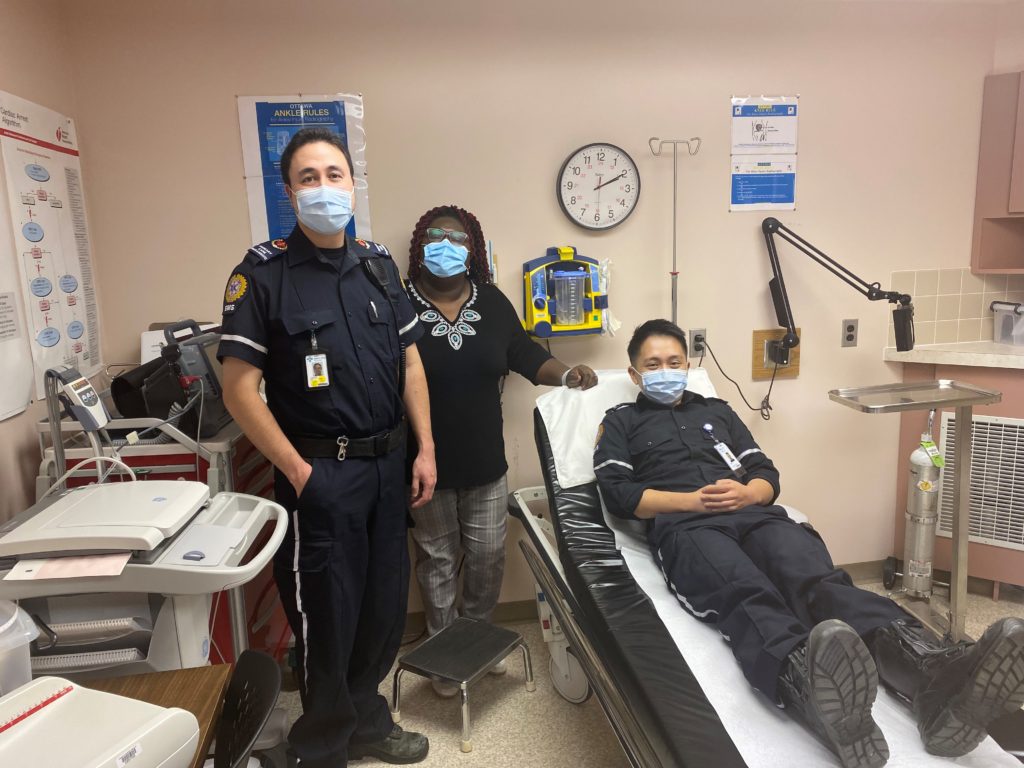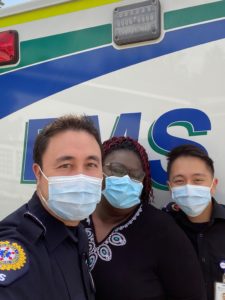
– Photo by Pamela Hale
Making a move from a southern Alberta community to the province’s north might seem like a risk to many, but it was a challenge and thrill for Rosa Mei Ning, a Nurse Practitioner (NP) working in Worsley, Alberta. For many registered nurses (RNs) caring for those in need is a critical career motivator, and they advance their training when they realize the limitations of RN practice.
Taking the education and experience they have gained, they complete a Masters Degree focused on diagnosing and treating medical concerns. The unique approach of the NP is rooted in their nursing experience and focuses on each person as an individual with particular needs, goals and dreams for their health and wellbeing. This focused style of care has garnered high levels of satisfaction from those that NPs serve, and is aligned well with primary and preventive care.
Rosa Mei’s experience in Brooks was limited by the RN role, and advancement of her education now allows her to address access issues for underserved and remote communities in northwest Alberta. However, NPs know that they work within a complex system that requires support and consultation from other healthcare professionals. Rosa Mei has established a network of NPs and physicians that she used for consultation, collaboration, and mentorship as she has established her practice in Worsley.
It is clear that, even if rural and remote communities attract clinicians to provide care, there are requirements for support and connectivity. The best healthcare is provided by teams of people who work within their roles to ensure comprehensive care of community members. Rosa Mei works closely with public health, home care, emergency medical services, physicians, mental health and workplace health and safety staff to meet the full range of needs in the Worsley/Fairview area.
The view of wildlife from my office and kitchen windows is quite a sight to behold – Rosa Mei Ning
NPs are advanced trained nurses who have the same capabilities as a family physician. As is the case in Worsley, NPs can manage acute illness, chronic disease, preventive care, prenatal care, well child management, and urgent/emergent needs. Care in a rural community follows a seasonal calendar, as is common in these areas; winter time is more focused on communicable disease and chronic disease management, and summer clinics are filled with more walk-in or emergent cases.

Primary care paramedic Terence Schweitzer, left, nurse practitioner, Rosa Mei Ning, and Warren Wong, primary care paramedic,
outside the Worsley Health Centre.
– Photo by Pamela Hale
The role of the NP in a rural community can be a pivotal one. Often rural and remote areas have struggled to recruit primary care providers (PCPs), and NPs can be another way to address the access to care gap that exists in Alberta. Though there are primary care access issues throughout the province; the access gap is wider in outlying areas, and recruitment and retention of clinicians are greater concerns. The PCPs who are present in northern communities may have closed their doors to new patients, making accessing care difficult. Connection to providers in larger communities can take a two hour drive OR a 5 minute drive to see Rosa Mei. Optimizing NPs as PCPs is a wise use of resources, and can improve the health of an entire region.
Truly, not all people are suited to a life governed by rural rhythms; often we speak about the importance of growing our own rural healthcare workforce. However, Rosa Mei is evidence that recruiting NPs from other areas is possible, and provides a marvelous opportunity to experience a different side of what Alberta has to offer. As Rosa Mei states, “the view of wildlife from my office and kitchen windows is quite a sight to behold”.
– by Rosa Mei Ning and Anne Sumach
